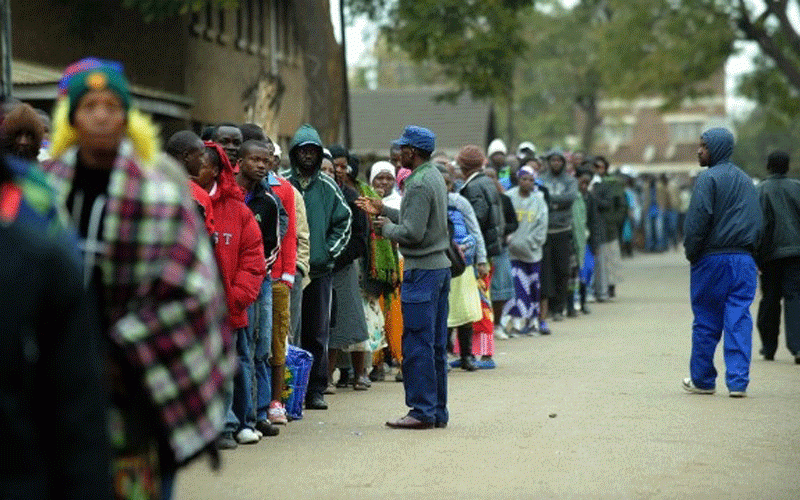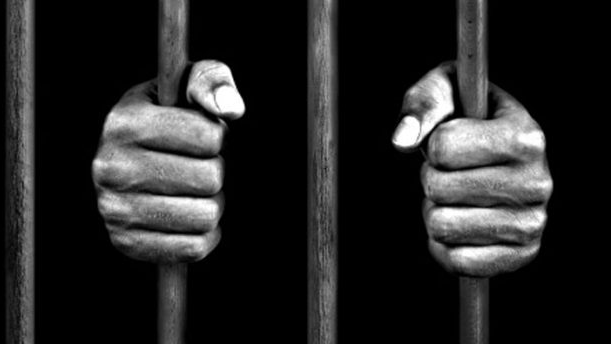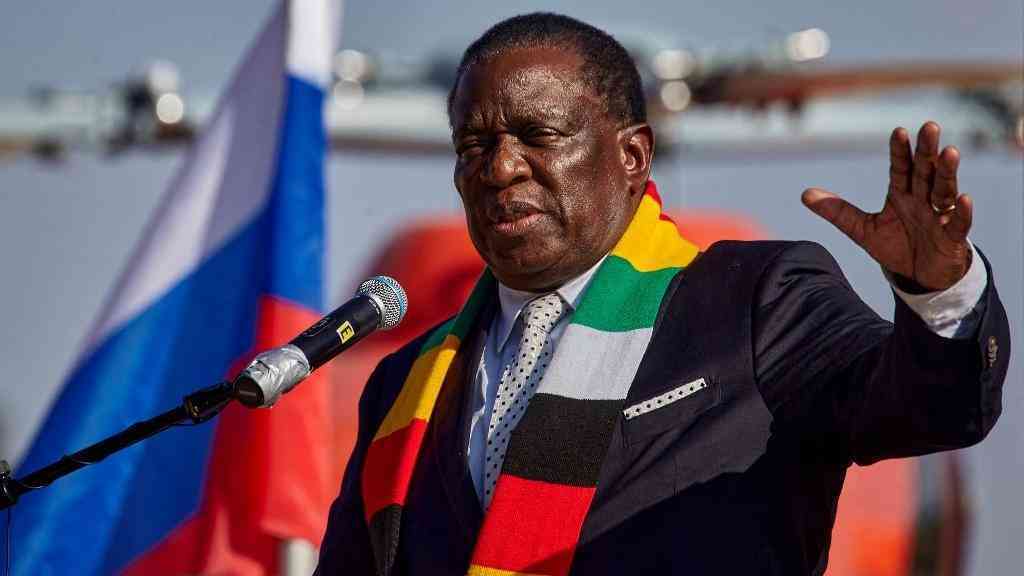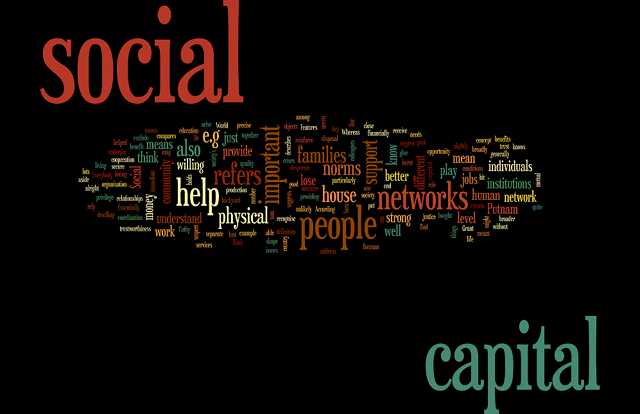
Zimbabwe is among the 23 countries that will hold elections this year. Thus, election observation by respective citizens of the countries involved and the role of international observer missions will be a topical issue among those interested in elections.
Based on the current authors’ personal experience with election observation (both local and international), the article notes that election observer missions’ recommendations are not immediately implemented by host countries. The thesis of this article is that election observer missions remain critical in the promotion of democracy in host countries, but citizens should play their part in advocating for the implementation of the mission recommendations.
The article is directly informed by reports issued by some local and international election observer missions that participated in Zimbabwe’s elections from 2000 to 2022. These include the National Democratic Institute (NDI), International Republican Institute (IRI), Zimbabwe Election Support Network (Zesn), The Carter Centre, Southern African Development Community (Sadc) Lawyers Association, Election Support Network- Southern Africa (ESN-SA), European Union (EU), The Southern African Institute of International Affairs (SAIIA), ACE Electoral Knowledge Network, and others.
What is election observation and what is its purpose ?
The SADC Lawyers Association (2013) defines election observation as the process of information gathering, eye-witnessing, and on-site fact-finding and making an informed judgment about the credibility, legitimacy, and transparency of an electoral process.
The SAIIA (2002) offers a more comprehensive but confusing definition by indicating that the term ‘election observation’ is used in popular speech to mean a variety of activities including monitoring, mediation, technical assistance, supervision, and inspection. Thus, for the purposes of this article, the current authors adopted a general definition of election observation that defines election observation as the gathering of information on an electoral process and the making of an informed judgment on that basis.
Election observers can note anomalies in the voting process but they are not authorized to intervene in the process. They cannot approach electoral officials to point out an anomaly or seek its rectification. The process of observing elections is fulfilled against set international and national (for the host country) standards with the aim of identifying whether the elections conform to accepted guarantees of democratic participation, identifying flaws and challenges, and also making recommendations on how the process can be improved in the future (SADC Lawyers Association, 2013).
Election observation is done by accredited people who have experience in the area and can make an objective judgment based on a standard tool. The following is what they actually do:
- CCC urged to push for dialogue over reforms
- Japan, EU in lukewarm response to Zimbabwe’s lobby to lift ivory ban trade
- Walk the talk on reforms
- EU concerned about proposed Zim laws
Keep Reading
Observation of processes and activities organized before, during, and after elections — (the period to be covered depends on the length of the mission)
Accurately collate facts and observations
Interpret the facts gathered against the laws governing elections as well as basic international and regional democratic standards, in order to see whether or not the elections conform to these standards
Put the findings and their interpretation into a report (preliminary and final reports)
The observers are deployed to polling stations throughout the country to make some determination on whether the election was free and fair and met set standards. While generally, election observers are sent to polling stations on election day as short-term observers, some organisations with adequate resources, send long-term observers weeks or months before an election to ascertain election preparation processes and the prevailing environment.
Election observation involves analysis of legislation, media, and other relevant documents, holding meetings and discussions, interviews with stakeholders, and observation of the conduct of various stakeholders in an election.
A preliminary statement immediately after the polling day is issued before a full report is developed, weeks or months after an election to express the findings of its observers.
Election observation can be done by governments; international organisations (eg AU; EU; Commonwealth; Pan African Parliament); Regional organizations such as SADC; civil society (ESN-SA; SADC-Lawyers’ Association) or national organizations (eg Zesn).
The rationale of election observation
Election observation has since been recognised as one of the most transparent and methodical ways to encourage States’ commitment to democratic standards. It has become a core element of stakeholders’ efforts to promote human rights, democracy, and the rule of law.
This process is a valuable tool for improving the quality of elections. International, regional, and national observers have come to play important roles in enhancing the transparency and credibility of elections and democratic governance and the acceptance of election results (SADC Lawyers Association, 2023). Below we give the generalised rationale for election observation.
Election observation allows citizens to interact with the electoral process, scrutinize, and enhance the transparency of elections. Election observation can thereby foster transparency and acceptance of election outcomes among all parties concerned and contribute to political stabilisation, especially in transition and post-conflict countries.
Yet, it is important to note that observers do not intervene during an election.
On election day, credible and impartial observers can strengthen an electoral process by reassuring voters they can safely and secretly cast their ballots and electoral fraud will be detected (The Carter Centre).
Reinforces the efforts of civil society in the electoral process and increases the credibility of their work.
Non-partisan citizen observers play an important role during elections by raising public confidence in the election process, deterring electoral malfeasance, exposing irregularities, and providing citizens with important information concerning the integrity of elections (NDI).
Impartial, credible election observers play a key role in shaping perceptions about the quality and legitimacy of electoral processes (The Carter Centre).
International election observation is the most visible form of democracy assistance (WFD, 2020).
Citing the EISA; BRIDGE Project, the SADC Lawyers Association (2013) summarizes the key roles of election observation as:
Increases political credibility and legitimacy of the process.
Identifies and defuses potential areas of conflict.
Enhances public confidence in the electoral process, including secrecy of the vote
Eases tensions and increases security.
Promotes openness and transparency
Deters improper practices and attempts at fraud
Key issues for election observation
Every election observation mission should be interested in the following:
Legal and institutional frameworks: The mission tracks human rights violations and election-related violence
Electoral or political environment: The conduct of security agencies in electoral processes.
Security arrangements and measures for election officials, candidates, and voters: The integrity of the conduct of the poll, including voting, the count, collation, and declaration of result.
Management of electoral logistics and distribution of electoral materials: Resolution of electoral disputes.
The integrity of the electoral preparations, including voter registration and voter education, boundary delimitation, and conduct of electoral bodies.
- Media coverage of contesting candidates and parties: The exercise of various freedoms and rights such as freedom of speech, assembly, and association.
- The role of civil society: Post-election environment including litigation of election petitions and others.
International , Regional , and National Frameworks
The standards for elections are drawn mainly from human rights law which is enshrined in international, regional, and national legal instruments. These instruments establish legal and political commitments for states to meet specific standards in relation to elections. Election observers are supposed to observe elections to see if the electoral processes meet these standards (SADC Lawyers Association, 2013). Without giving further details due to space limitations in this article (except for a few selected ones), we list below the main instruments that guide election observation:
- Universal Declaration of Human Rights (UDHR) (1948)
- International Covenant on Civil and Political Rights (1968)
- The UN Convention on the Political Rights of Women (1952)
- Protocol to the African Charter on Human and Peoples’ Rights on the Rights of Women in Africa (2003)
- African Union’s Declaration on the Principles Governing Democratic Elections in Africa (2002): Though not a legally binding instrument, the declaration presents a comprehensive aspiration of the AU regarding the standards for holding of free, fair, and democratic elections. Article II (4) states that; Democratic elections should be conducted: freely and fairly; under democratic constitutions and in compliance with supportive legal instruments; under a system of separation of powers that ensures in particular, the independence of the judiciary; at regular intervals, as provided for in National Constitutions; and by impartial, all-inclusive competent accountable electoral institutions staffed by well-trained personnel and equipped with adequate logistics.
- SADC Principles and Guidelines Governing Democratic Elections (2004): On the 17th of August 2004, in Mauritius, the SADC adopted the principles and guidelines which provide for five main issues which are; Principles for Conducting Democratic Elections; Mandate and Constitution of SADC Observers Mission (SEOMs); Guidelines for the Observation of Elections; Rights and Responsibilities of SADC Election Observers; and Responsibilities of the Member States Holding Elections.
- The African Charter on Democracy, Governance and Elections (2007)
- Other International legal instruments on Elections: Universal human rights treaties which provide for the principle of equality and non-discrimination which should be observed in electoral processes. These include the International Covenant on the Elimination of Racial Discrimination (ICERD) (1966), the Convention on the Elimination of All Forms of Discrimination Against Women (CEDAW) (1979), and the Convention on the Rights of Persons with Disabilities (CRPD) (2006).
- National legislation on the election: For Zimbabwe, in the Electoral Act, Section 40G to 40K, the role of observers is explained including the procedures involved in the whole process of engagement of election observers.
Citizens ’ Perception of Election Observer Missions
The current authors noted that in comparison, Zimbabwean citizens have more confidence in international observation missions than in local observers. In a research that focused on perceptions by citizens on election observer missions in Gambia, Kenya, and Zambia, Molony and Macdonald (2023)’s conclusions confirm the current authors’ observation. In both Zambia and Kenya, support for the presence of international observers was higher than support for citizen observers. The same observation was made for Zimbabwe by the current authors. The positive perception of international observers in Zimbabwe is probably due to political polarisation, a perception that political corruption is high, and previous contested election outcomes.
Despite the popularity of election observers in Zimbabwe, we noted that citizens know little about their particular roles. Indeed, some citizens do hold exaggerated expectations from election observers, especially international missions. Citizens often confuse observers with other electoral actors like polling station staff, the electoral management body, and party agents.
It is common for citizens to believe observers can and should intervene in the electoral process. Yet, non-interference should be a key principle for both citizen and international election observers (Molony and MacDonald, 2023).
Observer missions’ statements (reports) tend to be complex and nuanced because they are commenting on numerous aspects of an ongoing process. In the end, the media in particular or the street talk will reduce everything else to simple either/or judgments (such as whether elections were or were not “free and fair”).
The Declaration of Principles for International Election Observation and Code of Conduct for International Election Observers form the framework shared by all major organizations engaged in observation. Adopted in 2005 at the United Nations (U.N.) in a ceremony co-chaired by former United States (US), President Jimmy Carter, U.N. Secretary-General Kofi Annan, and former U.S. Secretary of State Madeleine Albright, Declaration sets forth guidelines for the conduct of professional and impartial observation.
International observers do not have the breadth of deployment in the country and thus cannot make categorical claims about the quality of the process, but they can provide essential cover for domestic groups and often have access to higher echelons of power to raise concerns. Such valuable observation is under threat by autocrats and unpopular governments that attempt to obfuscate the election evaluation process.
There is still much disagreement as to what constitutes a ‘free and fair’ election and this was reflected in the different conclusions of the various reports. In view of this definitional problem, many international and domestic observer groups no longer use the term ‘free and fair’. As elaborated further later in this article, it was only after Zimbabwe’s 2000 elections that some international standards were agreed upon with regard to judging an election. In 2000, four of the six missions accredited concluded that the elections were not a credible expression of the will of the people while two, concluded that the outcome of the elections was a credible expression of the will of the people (SAIIA, 2002). In such a scenario, can we say election observations helped the promotion of democracy?
The explanations from those who prefer international observers to local ones highlight a perception that they are more impartial than citizen observers, who are often viewed as being biased or corruptible (Mopoly and Macdonald, 2023).
Mission Recommendations Vs Implementation in Zimbabwe
The current authors have noted that Zimbabwe has been receptive to local and international election missions over the years. However, the implementation of the missions’ recommendations has not been satisfactory. Below we cite a few issues that have remained unresolved despite the fact that they were noted by previous election observer missions. The authors are concerned that, citizens continue to pin their hopes on election observer missions, yet, on the ground, there is no political will to implement the recommendations offered.
- The issue of lack of availability of the voters’ roll (register) for auditing and verification by stakeholders within predictable timeframes has remained a major observed matter but is still unresolved. The issue was noted by the AU in its 2013 and 2018 reports. The EU, 2018, and follow-up Mission (2022) also noted the same recurring matter. The ESN-SA also recommended improvements in its 2018 report. The issue has also occupied much space in electoral discussions in 2023.
- On universal suffrage, the IRI/NDI (2018) recommended the completion of a constituency delimitation exercise not less than one year prior to the next election. As we all now know, the delimitation report has attracted massive attention from all key stakeholders including its challenge in the courts. The same report (IRI/NDI) recommended fostering a national debate regarding the issue of voting by Zimbabweans living outside the country. The matter has not been resolved as the country prepares for the next election.
- Most of the mission reports in 2018 recommended that clear and conclusive results must be announced within the electoral deadline as this would ensure transparency and traceability of the counting of votes thereby strengthening confidence in this step. This is critical and the Zimbabwe Electoral Commission (ZEC) should be fully transparent in the tabulation and publication of results, including a published breakdown of results by polling station (EU, 2018). The ESN-SA (2018) also noted the same matter when it recommended the adoption and publicizing of transparent procedures for the tabulation, transmission, and announcement of results.
The current authors believe that Zimbabwe can learn from Kenya in this regard where results are transmitted electronically in an efficient and predictable way. The issue of transmitting results timeously in a predictable way has become more urgent considering what happened on 1 August 2018 when lives were lost as a result of public response to the issue of results. A joint statement issued by the AU, SADC, EU, Commonwealth, NDI, IRI, The Carter Center, and others captured the matter well.
- After the 2002 Presidential Election in Zimbabwe, all the observer missions commented forcefully on the lack of transparency in the electoral process, the biased legislative environment, and the incidence of political violence (SAIIA, 2002). The issue of violence (before, during, and after elections) continues to dominate the current political discussion thereby confirming that political violence still needs attention from all stakeholders.
- Elections Management: All the major local and international reports in 2018 noted a lack of public confidence in ZEC as an election body. It was recommended that there is a need for the adoption of more transparent and consultative procedures to build public trust in the ZEC and ensure the institution is widely perceived to be credible (IRI/NDI, 2018).
- The issue of assisted voters was also noted in the majority of previous elections including by-elections. Thus, recommendations have been targeted at the promotion of voter education by all stakeholders. Yet, the laws need to be flexible to allow more players to offer civic and voter education to minimize the number of assisted voters. It was interesting for the current authors to note that the matter normally comes out forcefully during the general elections and less during internal party elections. For instance, the just-ended Zimbabwe African National Union-Patriotic Front (ZANU PF)’s primary elections did not witness many people being assisted as voters.
- Media: All the local and international observer missions in 2013 and 2018 as well as during the many by elections in 2019 and 2022 noted that media coverage has remained biased toward some political parties. The publicly owned broadcasters remain biased toward the ruling party while the private ones also act in similar ways toward the opposition political parties. While it may be difficult to control private media, certainly, all parties should have equal access to public media platforms. The matter is linked to the discussion in part 2 of this series where we highlighted that government resources are sometimes used to serve partisan interest during election seasons.
- Inclusivity has also continued to feature in most local and international reports. While the Zimbabwean constitution attempted to address the challenge with regard to women’s participation in elections (through the women’s quota arrangement), the males still dominate the game. The AU (2018) report noted that women were 54% of the registered voters then, but only 7% of the candidates contesting the elections at all levels were females. It however celebrated that 4 out of 23 Presidential candidates were females.
Should Citizens Expect Much from Election Observer Missions ?
A question has often been asked as to whether Zimbabwean citizens should pile their hopes onto election observer missions or not. It has been noted that in most cases, the observer missions have their own limitations which we try to elaborate on below.
- The objectives and impact of observers must not be overstated. While often attributed to a wide range of aims and objectives, election observation’s core goals are modest but important. These are the provision of accurate and impartial reporting on the quality of elections to the public, media, and international community; and demonstrate the interest of the international community and the civil society in the host country’s elections and democratization. Thus, the role and interests of the missions should be fully understood within that limited scope.
- Yet some observers have been criticized for a reluctance to point out flawed processes, for holding biases, and for weaknesses in their methodologies.
- The observer missions just recommend and there is nothing else they can do beyond that. For instance, a total of 23 recommendations were formulated by the EU (2018), out of which ten are priority ones, linked to independence of the ZEC; effective/timely information from ZEC to electoral stakeholders and the wider public; voter registration; incumbency advantages and use of state resources; impartiality of state-owned media; aligning the Electoral Act with the 2013 Constitution; develop regulations for political party financing; reinforcing the security of the ballot; hold regular meetings of the Multi-Party Liaison Committees throughout the electoral process; and enhance transparency and verifiability of the results management process.
Yet, 15 recommendations required amendments to the Electoral Act and other relevant legislation, four required administrative change, two both legal and administrative change, and two ZEC operational reforms (EU, 2022). By 2022, two could be considered partially implemented. Actions to address nine of them, three of which are priority ones, were ongoing, but it was not yet certain whether they would be implemented before the 2023 elections. No action has been taken to implement eight of the recommendations proposed (EU, 2022). However, the ongoing processes with regard to the Electoral Amendment Bill are expected to address the key issues raised by the observer missions.
- During several recent elections across the continent, however, questions have also arisen about the competence and impartiality of observation missions. This has led to concerns about the future of observation, both in Africa, and Zimbabwe included.
- The perception that observation missions’ verdicts were “proved wrong” by court judgments in Kenya (2017) and Malawi (2019) has been particularly damaging on the part of election missions. In both cases, many commentators (mis)interpreted international observers’ statements as endorsements of electoral processes that the courts later annulled.
- Bilateral or single-country observer groups can also influence their national governments or parliaments. Many South Africans were disappointed that the South African observer teams failed to conclude that the election (2002 Presidential) was not reflective of the will of the people of Zimbabwe (in spite of their critical observations). A different conclusion may have influenced the South African government to take a more critical stance against Robert Mugabe (SAIIA, 2002).
- Observer missions normally leave the host country immediately after pronouncing their preliminary reports, yet a lot of developments may happen after election day. Thus, their preliminary pronouncements will compromise the ultimate position of that mission.
. Some commentators have argued that election observer missions have not been effective as their recommendations are not "pushy" and are sometimes vague and "soft" because they do not want to be seen as interfering in internal politics of host countries. Yet, indeed some autocratic governments have tended to "abuse" the word interference when election observers give unpalatable conclusions.
The Case of Zimbabwe’s 2000 and 2002 Elections
This section is directly informed by the work of the ACE Electoral Knowledge Network (available on their website). The network traces the origins and evolution of international observation and locates Zimbabwe in that history. It is noted that Zimbabwe’s highly contested elections in 2000 and 2002 (after the formation of the Movement for Democratic Change) demonstrated how contradictory assessments could dull the impact of observation and exacerbate domestic tensions.
The Zimbabwean government attempted to cherry-pick observers’ missions it thought would reach favorable conclusions. President Robert Mugabe restricted “the size of missions, denying accreditation to some groups, and preventing observers from monitoring critical pre-election activities” (ACE Electoral Knowledge Network). This forced some missions to adapt to the host country’s restrictions, yet, others denounced the move. The situation was made worse by the fact that, then, “no definitive conditions existed in the election observation community for withdrawing” (ACE Electoral Knowledge Network). The NDI and IRI were refused accreditation hence they denounced the electoral process as did the EU whose delegation was also restricted.
The NDI cited the country’s constitution, the UDHR and African Charter on Human and People’s Rights and concluded that “The conditions for credible democracy do not exist in Zimbabwe at this time.” (NDI, 2000). The report of the Commonwealth (2000) voiced concerns, particularly with electoral violence and intimidation, but ultimately concluded that “the conditions constitute a climate for the growth of multiparty democracy” after a long period of single-party rule.
As expected, the Organisation of African Unity (OAU) (now AU) and the SADC did not face the challenges faced by the other “western-linked” missions. This probably explains why they were more positive about the 2000 elections.
Overall, the international community’s message remained unclear, and contradictory with regard to the Zimbabwe elections. This exposed the “uncoordinated” and varying methodological issues in international election observation. This allowed Mugabe to manipulate the situation and employ similar tactics in 2002 (Presidential Elections). However, in 2002, only the OAU issued a statement that praised the electoral process.
Election Observer Missions “ Play ” Around with Words
The current authors further noted that election observer missions’ language remains diplomatic, cautious, “neutral”, ambiguous, vague, technical, and unfriendly to ordinary citizens. The ambiguities, diplomacy, and technicalities that characterize the mission reports at times leave them as “unuseful” tools in Zimbabwean contexts and elsewhere. “The notion that it is important to offer at least some encouragement to societies that are struggling with the basics leads them to downplay serious problems” (ACE Electoral Knowledge Network).
Below we sample some of the words and phrases in question:
- The elections were “generally peaceful”: This phrase is normally abused by the perpetrators of violence who will frequently refer to the report in between elections without concretely addressing the matter.
- The mission “noted with concern”: This phrase is normally pronounced in passing without accompanying details that should pinpoint the “real” issue of concern being given.
- The mission has noted “improvements”: Most missions are cautious not to fuel conflicts in host countries hence they carefully choose such words to encourage unity among the citizens even where a spade has to be named by its proper name.
- The election should be regarded as an “opportunity for improvement” for future elections: While this is an obvious case for every country, the missions’ reminder does not add any value to the electoral process.
- “While”, “though” etc: Such words leave room for a feeling of satisfaction that things went well. Yet, missions should have just pinpointed the real gaps without sugarcoating the point.
- “In the spirit of international cooperation”: Such phrases do not directly motivate the host country to act on noted gaps in the electoral process.
- We “urge” the country to remain peaceful: This “urge” lacks the “push” that is needed to motivate action with regard to the offered recommendations.
- Election process “fell short of accepted …standards”: For instance, this was the main conclusion of the AU mission in the 2008 Run Off election. Yet, the situation on the ground required direct words like “elections were violent” but the AU mission chose to use such subtle words.
Conclusion
Election observers can play an essential role in building the credibility of elections. Both local and international observer missions have become a critical tool for the promotion of human rights and democracy. The EU (2018) argues that elections are part of a process of change and democratic revival hence citizens have high hopes for the future, regardless of who wins a particular election. The late former UN Secretary-General, Kofi Annan is cited as having said “building democracy is a complex process. Elections are only a starting point but if their integrity is compromised, so is the legitimacy of democracy”. The article noted that Zimbabwean citizens have continued to believe in observer missions, especially international ones. Yet, they seem to overexaggerate what the missions can do. The missions do not have mechanisms to enforce their recommendations. Political will remains key in the fulfillment of the recommendations, yet, that will is visibly lacking as noted in the article. Most of the recommendations offered over the past couple of elections continue to feature in election missions’ reports thereby confirming that citizens’ expectations of the missions are not fulfilled.
Recommendations
- Observing an election is a big job that involves people, money, logistics, and politics. Thus, local and international missions may fail to fully cover the required ground in host countries. We recommend that local stakeholders should work to fill the gap as international observers may fail to deploy reasonable numbers across the country. The current authors noted that ZESN has played the coordination role well. The organization is well-networked and often coordinates regional and international missions during election seasons.
- While citizens should continue to value the role of independent observers, pinning their hopes on the same, they need to strengthen their advocacy for the implementation of recommendations offered by the election missions. The Church, civil society, and political parties should deliberately engage specific stakeholders for the implementation of relevant recommendations.
- In an undesirable scenario where most of the 2018 observer recommendations will not be implemented by the time Zimbabwe goes for the next elections in 2023, we recommend that election observers reflect on their role in Zimbabwe's democracy. They did this after the 2000 elections and indeed, serious international standards were adjusted as indicated in the article. New strategies can be found to ensure that the recommendations are implemented. "It should work! It will work!".
Dr. Tinashe Gumbo is a Social, Economic, and Environmental Justice activist. He writes on elections, the environment, mining, and music. He can be contacted on Mobile: at +254 702 523 940/WhatsApp at +263 773218860; Email: [email protected]; Blog: tinashegumbo.wordpress.com; Twitter: DrTinasheGumbo1; Facebook: Tinashe Gumbo











